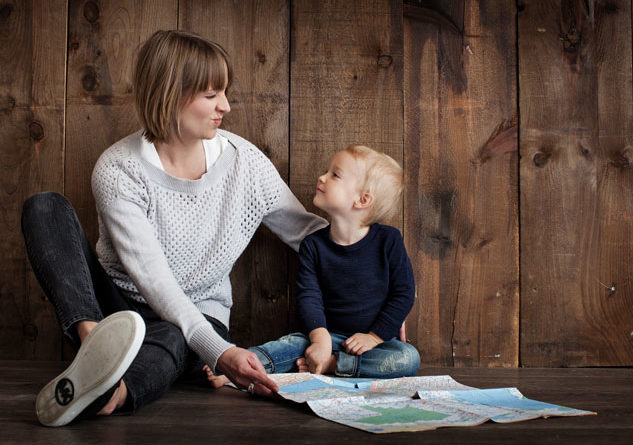Jessica Dym Bartlett, Lina Guzman, and Maria A. Ramos-Olazagasti
Child Trends
Research demonstrates a strong link between what parents know about parenting and child development and how they behave with their children. Parents with more knowledge are more likely to engage in positive parenting practices, whereas those with limited knowledge are at greater risk of negative parenting behaviors. Consequently, many parenting programs and services for families with infants and toddlers aim to improve parents’ knowledge of child development and healthy caregiving practices.
A Child Trends literature review on parenting knowledge found that parents desired high-quality knowledge on early childhood development and parenting—and had clear preferences for how they wanted to receive this information—but their opinions were rarely considered by researchers or practitioners. To address this gap, we conducted focus groups with racially, ethnically, and economically diverse groups of first-time parents of infants and toddlers.
Parents raised the following five key points during the focus groups.
1. Parents were eager for information on child development, but did not always know how to obtain this information.
Parents in the focus groups expressed a strong desire to learn about their children’s development and how to parent effectively. Specifically, they wanted to receive information in a judgement-free manner tailored to their specific individual, family, and cultural needs. While most parents reported feeling confident in their understanding of their child’s physical development, they felt less knowledgeable about their child’s social-emotional development.
However, parents were unsure how to obtain this information. They reported that pediatricians answered many parenting questions on developmental milestones and early physical development, but did not satisfy their desire for information on early social-emotional development.
2. Parents most often sought information on parenting and child development during developmental transitions.
Parents of all backgrounds reported feeling uncertain about how to care for their infant or toddler during transitional periods, including times in which the child was gaining a new skill or entering preschool. At these times, first-time parents of infants and toddlers were active consumers of information. They were especially likely to seek information in the early months of their children’s lives, when they were first adjusting to parenthood. Their information-seeking slowed after this phase but increased again as children entered a new developmental stage or engaged in behaviors parents found challenging.
3. Parents of different backgrounds and identities had more commonalities than differences when it came to their parenting knowledge and information-seeking preferences and behavior.
Regardless of economic background, gender, or racial/ethnic identity, parents appeared to possess similar knowledge, asked the same types of questions about parenting and early child development, sought information from comparable sources, and used similar strategies to make sense of information. Most parents turned to those in their social networks who had childrearing experience, including their own parents and grandparents, and friends with kids. They also relied on their own instincts, experience, personal preferences, and family values to guide their parenting.
The most pronounced differences were between mothers and fathers, both of whom struggled with societal expectations focused on gendered ideas of parenting. Mothers felt pressure to be a “supermom”: always present and nurturing, well-organized, equipped to handle any challenge, with a high-functioning and well-mannered child that plays well with peers. Fathers reported their desire to feel more engaged in supporting their children’s development, and felt that societal expectations are too low for paternal involvement in children’s lives.
4. The internet was a primary source of information.
Parents turned to the internet for information, support, and guidance. They relied most on search engines to look for answers to parenting questions, and on social media for online parenting groups and information on applying new knowledge to everyday interactions with their children. These parents appreciated the convenience and speed of information delivered by the internet and social media, and found comfort in the anonymity. However, the quality of information and advice found online was inconsistent, so parents often used information from multiple online sources to identify consensus.
5. Parents wanted clear, concise recommendations for parenting practices with examples of how to use them.
They reported that possessing knowledge about parenting and child development was necessary but insufficient to translating this information into practice. While evidence shows that first-time parents of infants and toddlers are especially likely to reap benefits from parenting programs and services, the parents in our study indicated that their families are more likely to thrive when information about child development and parenting is accompanied by recommendations for applying it to everyday interactions with their children.
Acknowledgements
Support for this work was provided by the Robert Wood Johnson Foundation. The views expressed here do not necessarily reflect the views of the Foundation.






